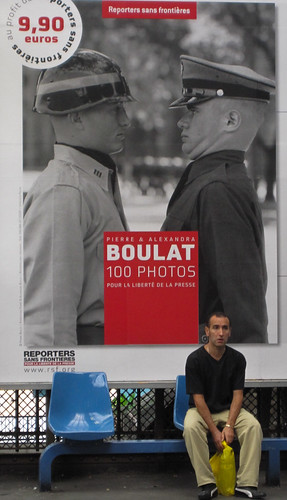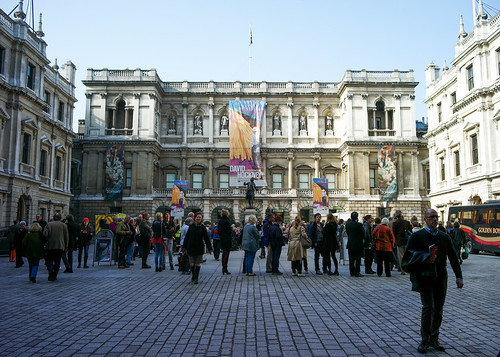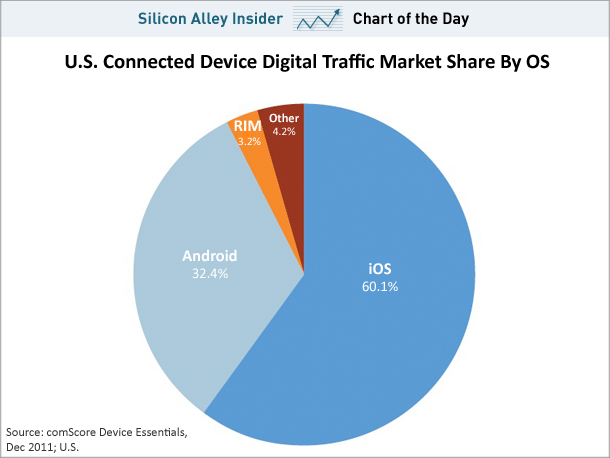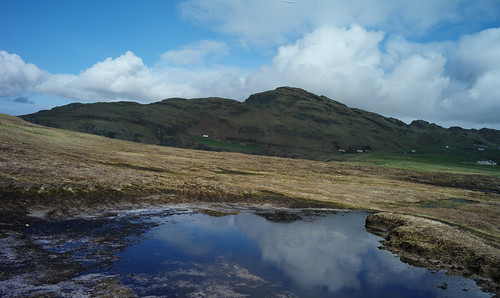In the world of Big Data the man with only Excel is blind
This morning’s Observer column.
One of the most famous quotes in the history of the computing industry is the assertion that “640KB ought to be enough for anybody”, allegedly made by Bill Gates at a computer trade show in 1981 just after the launch of the IBM PC. The context was that the Intel 8088 processor that powered the original PC could only handle 640 kilobytes of Random Access Memory (RAM) and people were questioning whether that limit wasn’t a mite restrictive.
Gates has always denied making the statement and I believe him; he’s much too smart to make a mistake like that. He would have known that just as you can never be too rich or too thin, you can also never have too much RAM. The computer on which I’m writing this has four gigabytes (GB) of it, which is roughly 6,000 times the working memory of the original PC, but even then it sometimes struggles with the software it has to run.
But even Gates could not have foreseen the amount of data computers would be called upon to handle within three decades…
Angling for a drink
Seen in a bar in Northern Ireland.
Memories to keep
Nice blog post by Terry Teachout about throwing stuff away.
So it was with no small amount of surprise that I found myself confronted the other day with three grocery sacks full of miscellaneous papers retrieved from an old desk I’d left behind in my previous apartment. I’d completely forgotten the contents of that desk, and though I didn’t expect them to include anything important, I thought I ought to give them a quick sifting just to be sure.
I threw out most of what I found. I saw no reason, for instance, to hang onto a two-inch-thick stack of photocopied pieces I’d written for the New York Daily News during my tenure as its classical music and dance critic, though I did shake my head at the thought of the hundreds of thousands of words I’ve published in the twenty-seven years since my very first concert review appeared in the Kansas City Star. Middle age has its cold consolations, one of which is the knowledge that you’re not nearly as important as you thought you were, or hoped someday to become. I used to save copies of everything I wrote, and for a few years I even kept an up-to-date bibliography of my magazine pieces! Now I marvel at the vanity that once led me to think my every printed utterance worthy of preservation.
Only one of those pieces held my attention for more than the time it took me to pitch it in the nearest wastebasket: a copy of the first piece I wrote forCommentary, a review of James Baldwin’s The Price of the Ticket published in December of 1985, six months after I moved to New York. I remember how hard I worked on it, and how proud I was to have “cracked” Commentary. Today it sounds hopelessly stiff and earnest, which is why I left it out of the Teachout Reader. What on earth could have possessed Norman Podhoretz to find a place for that immature effort in his book-review section? He told me the first draft was too “knowing,” the best piece of advice any editor has ever given me, and I revised it nervously, hoping to pass muster, never imagining that I would write hundreds more pieces for Commentary, eventually becoming its music critic. Would it have pleased me to know these things back in 1985? Or might it have dulled the tang of my first sale?
I didn’t expect to find a Metropolitan Opera program among my forgotten papers, though no sooner did I look at it than I knew why I’d saved it. I went to the Metropolitan Opera House on the evening of January 5, 1996, fully expecting to review the company premiere of Leos Janacek’s The Makropulos Case for the Daily News. Instead, I ended up writing a front-page story about how one of the singers in the production died on stage, a minute and a half into the first act. The opening scene of The Makropulos Case is set in a law office where Vitek, a clerk, is looking up the files for a suit that has been dragging on for close to a century. To symbolize the tortuous snarl of Gregor v. Prus, designer Anthony Ward turned the entire back wall of the set into a forty-foot-high filing cabinet containing hundreds of drawers. Enter Vitek, played by a character tenor named Richard Versalle. As the curtain rose, he made his entrance, climbed up a tall ladder and pulled a file out of one of the drawers. “Too bad you can only live so long,” he sang in Czech. Then he let go of the ladder and fell mutely to the stage, landing on his back with a terrible crash.
Three thousand people gasped. David Robertson, the conductor, waved the orchestra to a halt and shouted, “Are you all right, Richard?” Versalle didn’t speak or move, and the curtain was quickly lowered. I sat frozen in my aisle seat, stunned by what I had seen. Then I pulled myself together and ran to the press room to find out what had happened. A company spokesman told the rapidly growing band of critics and hangers-on what little he knew: Versalle had been rushed by ambulance to the nearest hospital. We started firing questions at him. How old was Versalle? When did he make his Met debut? Did he have a wife and children? I scribbled the answers (63, 1978, yes) on my program and pushed through the crowd to the nearest pay phone, where I dropped a quarter in the slot, dialed the number of the Daily News city desk, and spoke three words that had never before crossed my lips other than in jest: “Get me rewrite.” Eight years later, I leafed through the program of that unfinished performance, looking at my barely decipherable notes. As souvenirs go, it was a good one, and I decided to keep it.
Waiting for Hockney
What kind of capitalism?
Interesting column in the New York Times by Tom Friedman.
David Rothkopf, the chief executive and editor-at-large of Foreign Policy magazine, has a smart new book out, entitled “Power, Inc.,” about the epic rivalry between big business and government that captures, in many ways, what the 2012 election should be about — and it’s not “contraception,” although the word does begin with a “C.” It’s the future of “capitalism” and whether it will be shaped in America or somewhere else.
Rothkopf argues that while for much of the 20th century the great struggle on the world stage was between capitalism and communism, which capitalism won, the great struggle in the 21st century will be about which version of capitalism will win, which one will prove the most effective at generating growth and become the most emulated.
“Will it be Beijing’s capitalism with Chinese characteristics?” asks Rothkopf. “Will it be the democratic development capitalism of India and Brazil? Will it be entrepreneurial small-state capitalism of Singapore and Israel? Will it be European safety-net capitalism? Or will it be American capitalism?” It is an intriguing question, which raises another: What is American capitalism today, and what will enable it to thrive in the 21st century?
Rothkopf’s view, which I share, is that the thing others have most admired and tried to emulate about American capitalism is precisely what we’ve been ignoring: America’s success for over 200 years was largely due to its healthy, balanced public-private partnership — where government provided the institutions, rules, safety nets, education, research and infrastructure to empower the private sector to innovate, invest and take the risks that promote growth and jobs.
When the private sector overwhelms the public, you get the 2008 subprime crisis. When the public overwhelms the private, you get choking regulations. You need a balance, which is why we have to get past this cartoonish “argument that the choice is either all government or all the market,” argues Rothkopf. The lesson of history, he adds, is that capitalism thrives best when you have this balance, and “when you lose the balance, you get in trouble.”
Must have a look at Rothkopf’s book.
The dominance of Apple’s iOS
Source: Business Insider
Reflections in a landscape
Taken at Muckross Head on the coast of Donegal on a beautiful March morning. Larger size here.
St John squared
My first thought, on learning that Norman St John Stevas had passed away, was to imagine the conversation at the Pearly Gates as he arrived in one of his trademark ecclesiastical purple shirts. St Peter would have fallen into same the trap as one of Stevas’s political colleague — by asking “What colour is that ?” Stevas’s reply: “Crushed Cardinal”.
There were lots of affectionate obituaries — for example in the Economist (for which he worked before becoming an MP. I was also gratified to see that the Telegraph picked up my joke — cracked many years ago — that people had begun calling my old college (of which he was then the Master) “Mein Camp”.
His time at Emmanuel College, from 1991 to 1996, was equally tumultuous. It was said that the dons of the historically Puritan institution first had doubts about whether they had chosen the right man when several of his friends were caught naked one night in the Fellows Garden swimming pool. While he certainly raised the college’s profile (albeit particularly in such outlets as House and Garden and Hello!), there was controversy on the high table over the lavish refurbishment of the Master’s Lodge and an expensive new extension to the college which some saw as a monument to the Master rather than a useful addition.
Some fellows were furious that Mohammed Fayed had donated £250,000 to the project, his reward being a “Harrods Room” and honorary membership of the college — a distinction invented by the Master. So bad was the feeling in some quarters that one tutor started handing out copies of the Master’s pronouncements in his role as “constitutional expert” with a prize for the student who spotted the greatest number of legal mistakes.
Lord St John was also accused of spending an excessive amount of time with a small clique of mainly public school-educated young men who, it was alleged, were favoured with introductions to royalty and captains of industry, to dinners at White’s, private theatrical performances at the Master’s Lodge and long, affectionate letters. Such special privileges were extended to very few. Other undergraduates would recall the Master cutting them off in mid-sentence with some disparaging remark in Latin. To bitchy colleagues in other colleges, Emmanuel became known as “Mein Camp”.
He was indeed extremely camp. After he arrived, the College magazine — hitherto a worthy publication dedicated to obituaries of obscure dons, accounts of the Boat Club’s exploits, articles by Old Members of their travels in Asia during the Ming Dynasty, etc. and illustrated by monochrome images of buildings in urgent need of sandblasting — was transformed into a Technicolor extravaganza replete with photographs of the Master in various kinds of flamboyant garb. Once he agreed to a profile in Hello! magazine, for which he allegedly posed reclining on his bed in the Master’s Lodge surrounded by photographs of the royal family. Anxious to determine whether this was in fact the case, I went around various newsagents on the day of publication seeking a copy, but none was to be had — all had sold out by 9.30am! I suppose I could have had a look by going to the hairdresser, but even I drew the line at that.
I also ran a campaign to have him canonised, on the grounds that he could then be known as “St John Squared”. But, alas, the Vatican paid no attention to the proposal.






